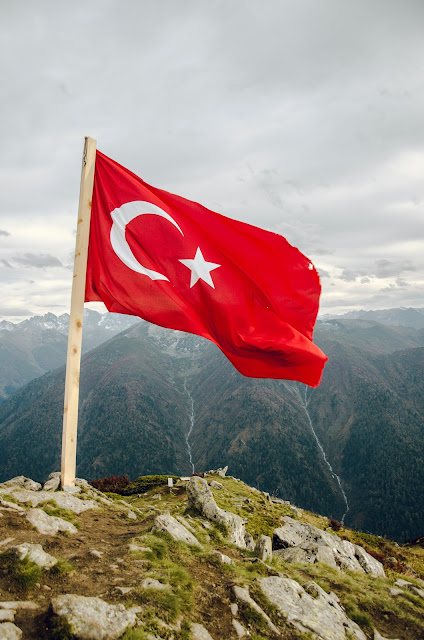History of turkey
History of turkey :The Republic of Turk was founded in 1923 by Mustafa Kemal Ataturk, replace the dynastic and theocratic Ottoman system with its Sultanates and Caliphates. The new republic was based on a secular democratic, pluralist, and parliamentary system. In 1945 Turkey joined the UN and became a member of NATO in 1952.
Profile of the turkey:Official Name:
Türkiye Cumhuriyeti
local short form: Türkiye
Int'l long form: Republic of Turkey
Int'l short form: Turkey
ISO Country Code: tr, TUR
Actual Time
Local Time = UTC+2h
Daylight Saving Time (DST) March - October (UTC +3)
Country Calling Code: +90
Capital City: Ankara (pop. 3.8million)
Other major cities:
Istanbul (9.4 million), Izmir (3.4 million), Bursa (2.9 million), Adana (1.7 million)
Türkiye Cumhuriyeti
local short form: Türkiye
Int'l long form: Republic of Turkey
Int'l short form: Turkey
ISO Country Code: tr, TUR
Actual Time
Local Time = UTC+2h
Daylight Saving Time (DST) March - October (UTC +3)
Country Calling Code: +90
Capital City: Ankara (pop. 3.8million)
Other major cities:
Istanbul (9.4 million), Izmir (3.4 million), Bursa (2.9 million), Adana (1.7 million)
Republic of turkey:
The Anatolian peninsula is often known "the cradle of civilization," as it has been home to a wide variety of tribes and nations of people since at least 10,00B.C.
On the site of Göbekli Tepe, there is the oldest known man-made structure, the collection of the oldest known megaliths in the world, dating back to around 10,000 B.C.
From about 1200 B.C., the coast of Anatolia was heavily populated by Aeolian and Ionian Greeks. Numerous important cities were created by the Greek colonists, such as Miletus, Ephesus, Smyrna (today İzmir), or Byzantium (that later became Constantinople, now Istanbul).
Political System of Turkey
Turkey is a republic since 1924. According to Article 2 of the constitution, Turkey is a democratic, secular, and social constitutional state. The present president is Recep Tayyip Erdoğan. The president is directly elected by absolute majority popular vote. He is together chief of state and head of government.
In the june 2017 referendum, voters voted by a narrow majority to transform the parliamentary government system that has existed since 1920 into a presidential system.
The Economist Intelligence Unit's Democracy Index rated Turkey as a Hybrid Regime between Flawed Regimes and Authoritarian Regimes.




Wow
ReplyDelete